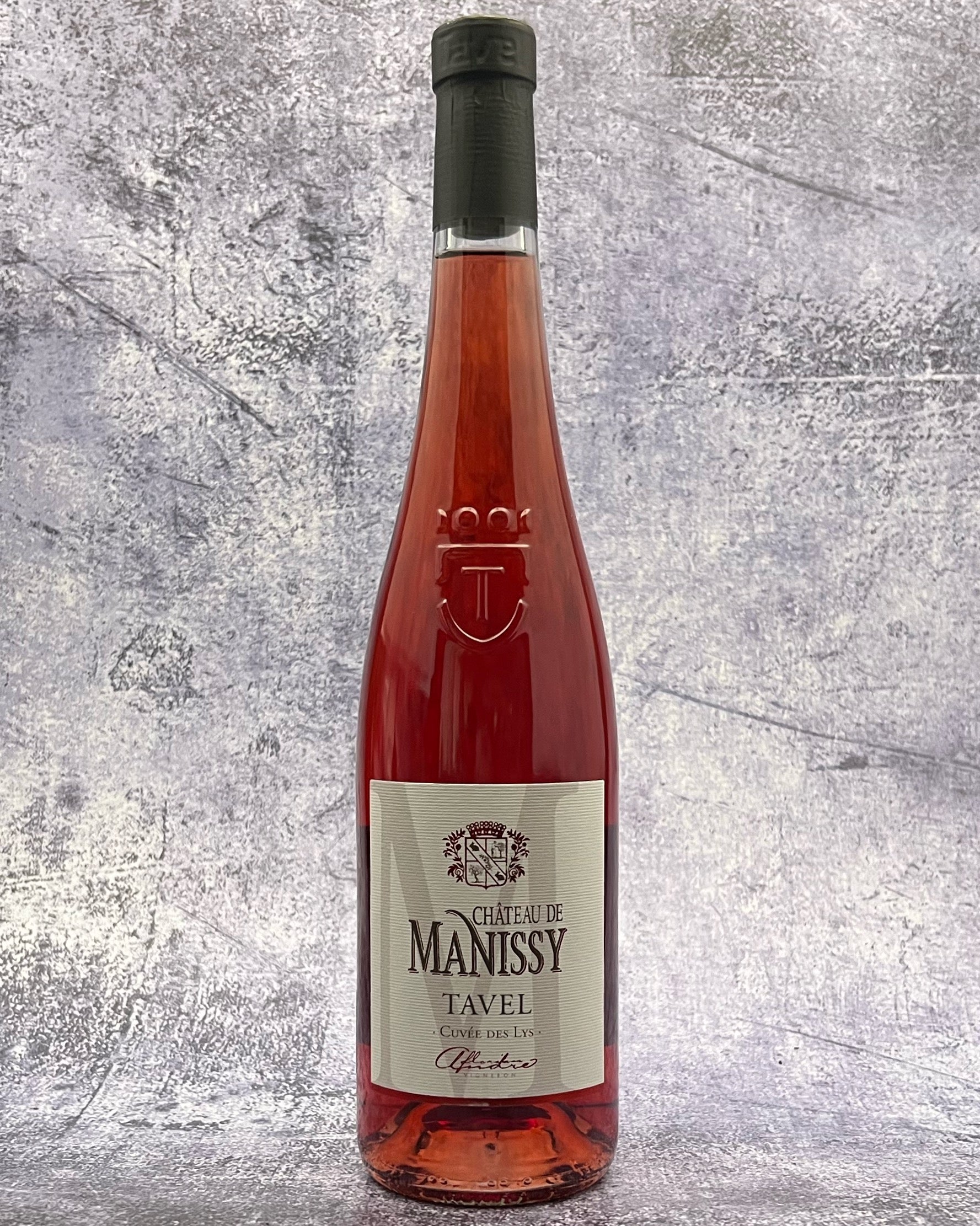Description
From: Southern Rhône, France
Blend: 50% Grenache, 30% Syrah, 20% Clairette
Taste: This aromatic rosé is long on elegance and freshness. A blend of Grenache, Syrah, and Clairette, from about 40 years old vines, this is a traditional dry wine from one of the great rosé wine regions of the world. An effusive bouquet of ripe wild raspberries, strawberries, redcurrant, pomegranate, and Rainier cherries immediately greets the senses. This fruit medley is balanced with breezy citrus, Mediterranean floral and herb notes, and the punch of blood orange. All of this rests on a stony, mineral core that promises a fresh, lingering finish.
Pairing: As a Mediterranean style rosé, the Château de Manissy Tavel Rosé 'Cuvée des Lys' pairs perfectly with regional dishes of Southern France. Its concentrated, structured, and fuller-bodied profile complements fish soup, seafood pasta, roasted chicken with Mediterranean herbs (check out the recipe below), Nicoise salad, or even a slightly spicy Middle Eastern-style lamb pie.
Middle Eastern-Inspired Herb and Garlic Chicken
By Melissa Clark
About. Steeped in a rich tapestry of wine production, Southern Rhône, France, is home to the globally acclaimed Tavel appellation - the only one in the Rhone Valley exclusively producing rosé. As the vanguard of rosé production, Tavel is considered by the wine "cognoscenti" as the producer of the world's finest rosés, distinguished by their remarkable capacity to age gracefully and evolve in character.
Situated to the southwest of l’Orange and northwest of Avignon, the quaint town of Tavel harbors the Château de Manissy, famed for its distinguished 'Cuvee des Lys' 3. A rich blend of 50% Grenache, 30% Syrah, and 20% Clairette, this rosé evokes the vibrant history and stunning terroir of the region.
Château de Manissy's winemaker, Florian André, honed his craft under the mentorship of the legendary Christophe Delorme at Domaine de la Mordorée. His dedication to producing wholesome, healthier wines is driven by his devotion to the planet and his family. In his words, "Since the birth of my son in 2009, I’ve been more conscious than ever of offering healthier, more wholesome wines. I’m convinced that organic viticulture is the right choice, and is the only way to protect the earth and our planet, our health and the future of our children.”
André's commitment to sustainability is evident in his organic viticulture practices. At Château de Manissy, chemical inputs such as fertilisers, pesticides, and weedkillers are stringently avoided. Instead, vines are treated with copper and sulphur products, in the lowest possible concentrations, to prevent soil pollution. This preventive approach extends to weed control, achieved mechanically through soil-tilling. Even in the winemaking process, the château opts for nitrogen blanketing to reduce the need for sulphites.
The 2022 Tavel Cuvee des Lys (last year’s rosé, it’s too early for the 2023 scores, but we’ll update you as soon as we have them) has earned critical acclaim from wine experts. Robert Parker's Wine Advocate rated it 92, highlighting its lighter hue, scents of crushed stone, citrus and strawberries, and an impressively structured palate that boasts a lingering, stony austerity. Similarly, James Suckling, who awarded the wine a 91, praised its effusive redcurrant fruit, fine tannins, and balanced acidity that irresistibly invites a second sip.
Founded in 1916, the vineyards of Château de Manissy were originally planted by monks from the missionary brothers of the holy family. The estate, based in Tavel, developed a reputation for its barrel-aged Tavel rosé. In 2003, the brothers enlisted the help of Florian André, who further enhanced their sustainable farming practices and converted the vineyards to organic and biodynamic farming.
Tavel is renowned for its specialization in dry rosé wines, made predominantly from the Grenache, Syrah, and Clairette varieties. These wines offer a more complex alternative to white wines during the sweltering summer months, best enjoyed chilled. While much of Tavel's output is released as "Primeur" wine, intended for immediate consumption, standard Tavel rosé, like the Château de Manissy's offering, can improve with age when cellared correctly.
The soils of Tavel, stony and sandy, compel the vines to grow deep roots in search of water and nutrients. This struggle, combined with patches of limestone and red, iron-rich soil, creates rosés of unique character. They are robust, yet delicate, rich, and earthy. Their vibrant pink hue and higher tannin levels result from extended skin contact during fermentation, adding depth to their flavor. These characteristics, coupled with Tavel's hot, dry Mediterranean climate, which enables full phenolic ripeness in the grapes, have led to the increasing popularity and value of Tavel rosé.

